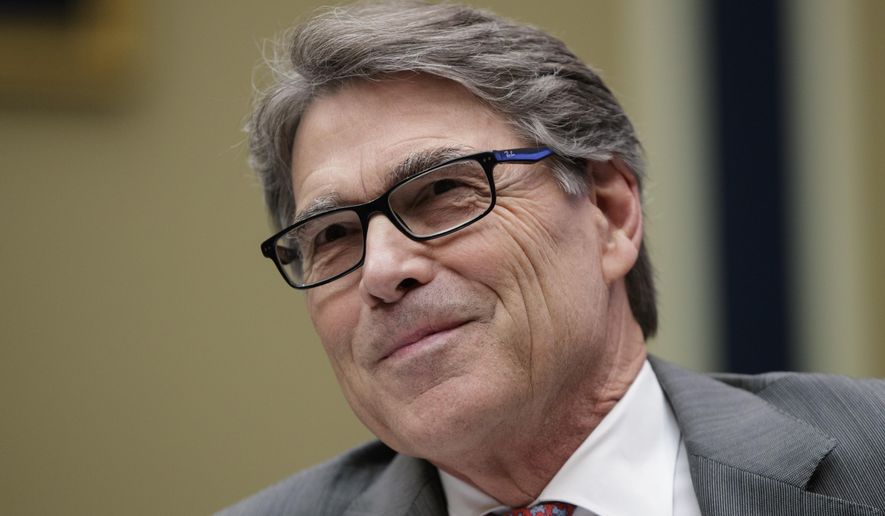CAPE TOWN, South Africa — Visiting Energy Secretary Rick Perry said Wednesday that the Trump administration is ready to partner with African countries to expand electricity across the continent, “including from fossil fuels.”
Speaking at a regional oil summit on Wednesday in Cape Town, the former Texas governor said it was time to break the global “culture of shame” around using oil, gas and coal. The trip was one of the first indications that President Trump’s promise to end what he called the Obama administration’s “war on coal” was taking on an international dimension.
Mr. Perry told the summit that he backed the formation of “a global clean coal alliance” including the U.S., India, Australia and South Africa.
“If you admit you support fossil fuels, it’s like saying you’ve made some huge social error,” he said. “But it’s in fossil fuels that you will see real growth.”
Mr. Perry held bilateral meetings with oil and energy ministers from across Africa and said he was concerned about the low level of electrification on the continent.
“Development starts when you have a power supply,” he said, adding that more than a half-billion people in Africa live without electricity.
“That’s my message to Africa. America is truly your friend and your partner. And we’re here to help Africa use fossil fuels and use them cleanly with the world’s newest and best technology.”
The Trump administration has targeted a World Bank policy that limits funding for fossil fuel projects, which environmentalists say is the major man-made contribution to global warming.
The issue came to the fore at the annual IMF meeting in Washington this month. South Africa and Nigeria questioned the World Bank’s plan to spend 20 percent of its budget on renewable energy, along with a ban on any project using coal.
Nigerian Finance Minister Kemi Adeosun described the policy as unfair because “the entire Western industrialization was built on coal-fired energy.”
Mr. Perry said it was time for institutions to “take their thumb off the scale” and allow countries to use energy from any source.
“We have seen the public scared by people who have political agendas,” he said. “If there are risks, they need to be minimized, but the priority is that Africans must have access to affordable power.”
Washington, he said, was willing to help countries develop their energy systems “from all sources.”
The International Energy Agency recently projected that, given current trends, 674 million people in the developing world will still be without electricity by 2030.
Mr. Perry said it was important to keep the power grid in good order even in developing economies, citing the hardships Puerto Rico has experienced in the aftermath of Hurricane Maria.
“Puerto Rico had problems with poor management of their electrical system before the storm, and that compounded the crisis,” he said.
Several protest groups raised placards near the oil conference in Cape Town, calling for an end to fossil fuels, but Mr. Perry said it was not a binary choice between development and the environment.
“You can have both,” he said. “We need to open debate on these issues, and countries in Africa must be free to choose which way they want to go.”
He said he decided to attend the meeting to show there has been a change in policy in Washington.
“My showing up here is about U.S. support for Africa,” he said. “We will invest in African energy projects, but it’s also time to let technology be your friend. We will help this continent make more power, and we will do it cleanly.”




Please read our comment policy before commenting.